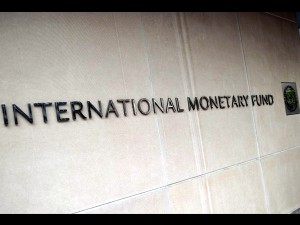IMF backs expanded BSP powers
MANILA, Philippines—The International Monetary Fund (IMF) has noted the need to expand the central bank’s powers to include the ability to supervise shady transactions between banks and their affiliates within conglomerates.
IMF Resident Representative Shanaka Jayaneth Peiris said the health of the local financial system was at risk given rising levels of corporate debt, which might lead to weaknesses if certain areas remained unchecked.
“The Philippines is a clear case. Corporate leverage has increased. That’s a reason we should monitor it closely,” Peiris said this week.
His comments come amid discussions over amendments to the current Bangko Sentral ng Pilipinas (BSP) charter. These amendments, currently pending in both houses of Congress, include giving the BSP authority to look into transactions between banks and their sister firms.
Among these powers include the relaxation of deposit secrecy laws to allow BSP examiners to look into corporate accounts.
BSP Deputy Governor Nestor A. Espenilla Jr. last week said most investigations led to a dead end because of the country’s strict deposit secrecy laws.
Espenilla noted that there have been several instances where conglomerates borrowed from their affiliate banks, only for the same conglomerates to use the proceeds from the same loan to infuse fresh capital into the bank.
“For instance, banks can grant loans and these can be deposited somewhere. Then the money is withdrawn and infused in the bank. Was new capital created?” Espenilla asked.
He said this practice of recycling funds, which are borrowed from depositors, might lead to instability in the financial sector if left unchecked.
“That’s critical in most countries in the world. Central banks have those powers, to look at affiliated enterprises,” IMF’s Peiris said.
“A lesson from the crisis is that there needs to be a regulator with powers to ensure financial stability to avoid regulatory gaps,” he said, referring to lending between institutions related to one another, including nonfinancial entities and banks.
Last year, the IMF warned that a default by any major, highly leveraged conglomerate could lead to a significant increase in bad assets held by banks, jeopardizing their ability to meet the economy’s demand for cash.

